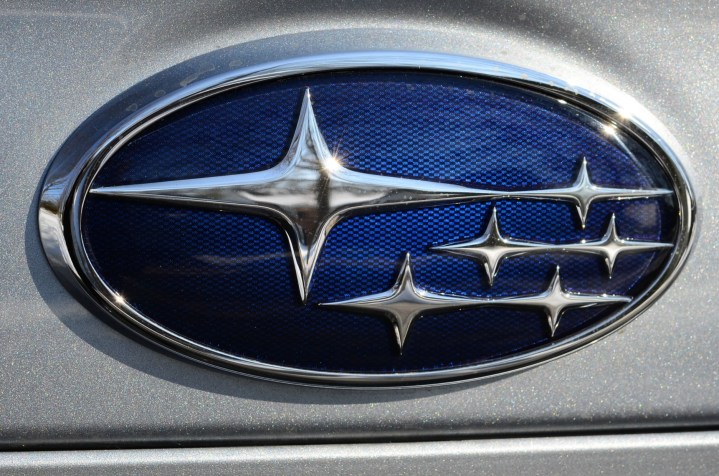
Subaru is issuing a major recall of more than 2.3 million SUVs, including about 1.3 million vehicles in the United States and nearly one million more in the rest of North America and Japan, the Wall Street Journal reported. The issue stems from an emissions problem that results in brake light failures, but the cause may surprise you.
While the issue is related to emissions, it’s not emissions from the car that are causing problems. Instead, the issue stems from chemical compounds emitted from common consumer products like shampoo, perfume, fabric softeners, polish, and cosmetics. Those chemicals seem to be the source of some sort of interference by creating an insulating barrier on brake light switches. That barrier causes reduced flow of electricity to the lights and renders them useless.
The recall caused by the chemical compound issue will reportedly affect the company’s Impreza, Forester, and Crosstrek models produced between the years 2008 and 2017. It’s unclear what will be required to fix the issue.
While brake lights appear to be primarily what is affected by the chemical compound, those issues can lead to bigger problems for Subaru owners. The recall warns that the faulty brake light switches could put the vehicles at risk of suffering from ignition issues. Because of that possibility, the company appears to be taking the recall quite seriously.
The recall will be the largest in the history of the Japanese automaker and comes at a time when the company is already suffering from some bad press. Last year, the company revealed that two of its factories were caught manipulating fuel efficiency data. The scheme took place between December 2012 and November 2017 and reportedly affected about 900 of the more than 6,000 cars produced by the plants.
Late in 2018, Subaru also had to issue another recall, that time over faulty valve springs. The recall affected 400,000 vehicles and required a labor-intensive process to perform the necessary fixes. And early this year, Subaru had to halt production in its Japanese factories because of a power steering issue that was affecting some models of the company’s cars. The shutdown, albeit brief, forced the company to stop operating factories that account for two-thirds of its global vehicle output.


